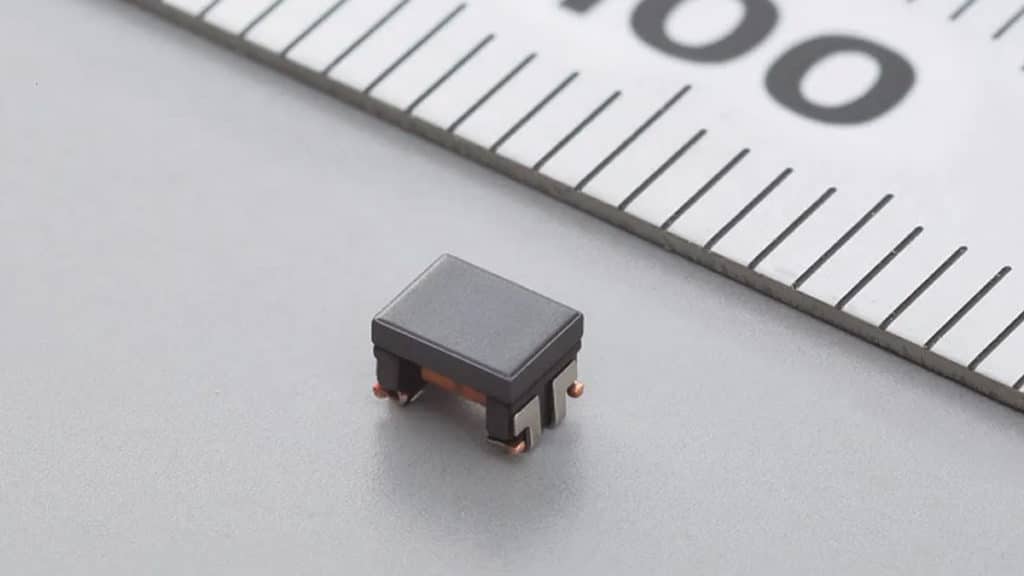Murata Manufacturing Co., Ltd. today announced the DLW32MH201YK2, a common mode choke coil (CMCC) for Automotive Ethernet*1 (100BASE-T1*2). Withstanding extreme temperatures ranging from -55 to +150°C, makes this product a world first for its type*3. Mass production of this product will start in December 2019.
In recent years, as cars have been equipped with more advanced features, the number of ECUs*4 installed in cars has been increasing in order to support the functioning of autonomous driving systems such as ADAS*5. As networks for connecting these ECUs, high-speed interfaces that support the differential signal transmission systems*6 like Automotive Ethernet are becoming common. Along with this trend, there is a growing need for components that can be used in high-temperature environments such as engine rooms.
This product has an operating temperature range of -55 to +150°C, which compares favorably to the -40 to +125°C temperature range of conventional products, allowing it to be used in harsh temperature environments. This improved performance has been achieved by employing metal termination that absorbs the stresses associated with temperature change as well as by optimizing the combination of Murata’s own original materials and product design. Moreover, as the product’s size has been kept small, ECUs can be installed in a wider range of areas.
Murata will continue to develop products that meet the needs of the market and to contribute to enhancing the automotive networks that support autonomous driving.
Highlights
- Suitable for Automotive Ethernet (100BASE-T1)
- Operating temperature range -55 ~ +150°C
- 1210 inch size (3.2 mm x 2.5 mm)
- Compliant to AEC-Q200*7
- Rated voltage 80V
About the product
Wire-wound common mode choke coil DLW32MH201YK2
* Notes
- Automotive Ethernet: One of computer network specifications used in cars
- 100BASE-T1: An automotive communications specification supporting up to 100Mbps data transmission through UTP (Unshielded Twist Pair) cables
- Based on Murata’s internal study in November 2019
- Electronic Control Unit
- Advanced Driving Assistance System
- Differential signal transmission systems: A method of transmitting signals using the difference in voltage between two signal lines
- AEC-Q200: One of the specifications defined by the Automotive Electronics Council (AEC)
